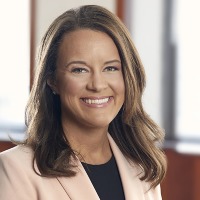Cravath’s New York Office Moves to Two Manhattan West
On September 25, 2014, the U.S. Court of Appeals for the Seventh Circuit issued two decisions that resolve important issues in favor of Cravath client NCR Corporation. The decisions address the allocation of approximately $1 billion in costs associated with remediation of the Lower Fox River in Wisconsin. These decisions have important implications regarding contribution, “arranger” liability and divisibility of environmental harm under the Comprehensive Environmental Response, Compensation, and Liability Act (“CERCLA”), commonly known as “Superfund.”
The U.S. Government had identified NCR as one of several potentially responsible parties (“PRPs”) for cleanup of the Fox River, necessitated by PCB discharges from paper manufacturing facilities on the river. Two of the issues on appeal arise from a 2008 contribution action brought by NCR against other PRPs, seeking to allocate cleanup costs incurred by NCR. In that action, Appvion, Inc., et al v. George A. Whiting Paper Co., et al., No. 08-cv-16 (the “Whiting Action”), brought in the U.S. District Court for the Eastern District of Wisconsin, the court granted summary judgment in favor of the other PRPs, holding NCR liable for all remediation costs downstream of a facility previously owned by NCR (the “ACPC” facility). Cravath was retained to appeal these summary judgment rulings (the “SJ Rulings”) and to serve as NCR’s lead trial counsel for all further proceedings before the district court. In 2012, Cravath obtained a ruling, following trial, exonerating NCR from any liability for the cleanup of areas upstream of ACPC’s facility. Specifically, the district court found that ACPC had not “arranged” for the disposal of hazardous waste into that area of the Fox River by selling “broke”—PCB-containing paper scrap resulting from the manufacture of carbonless copy paper—to paper mills in that upstream area (the “Arranger Ruling”). (Please click here for the related news item.) In 2013, NCR appealed the SJ Rulings and the other PRPs appealed the Arranger Ruling.
The third issue on appeal before the Seventh Circuit pertains to a lawsuit brought by the United States and the State of Wisconsin, also in the U.S. District Court for the Eastern District of Wisconsin, to enforce remediation of the Fox River. Following a three-week bench trial in December 2012, the district court entered a declaratory judgment finding NCR jointly and severally liable for the Fox River remediation and enjoined NCR and three other parties to perform that work (the “Enforcement Action Ruling”). NCR, which alone has already performed over 50% of the required remediation at the site, appealed this ruling.
On February 28, 2014, the Seventh Circuit panel heard oral argument on the Whiting and Enforcement Action appeals and cross-appeals. Cravath partner Evan R. Chesler argued on behalf of NCR.
In a decision by Chief Judge Diane P. Wood regarding the Whiting Action, the Seventh Circuit panel vacated the SJ Rulings, holding that the district court abused its discretion by allocating 100% of Fox River cleanup costs downstream of ACPC’s facility to NCR. The Court of Appeals concluded that the district court abused its discretion by preselecting the parties’ knowledge of the dangers of PCBs as the dispositive factor for determining equitable contribution and limiting discovery to that issue, rather than allowing discovery into other issues, such as the parties’ relative volumes of PCB discharges, before selecting the relevant factors affecting allocation. The Court remanded the issue of contribution to the district court for reconsideration on the basis of a more complete record. In the same opinion, the Court affirmed the Arranger Ruling. It agreed with the district court’s (and NCR’s) analysis of the arranger liability standard and concluded that the district court’s key factual finding—that ACPC’s “main purpose” in selling broke was to sell a useful product, not dispose of waste—was not clearly erroneous.
In a separate decision by Judge John Daniel Tinder, the Seventh Circuit panel vacated the Enforcement Action Ruling against NCR. The key issue on appeal was whether the district court erred in rejecting NCR’s “divisibility defense”—that the harm at the Fox River site is capable of apportionment among different parties, and that NCR already has incurred costs exceeding its divisible share. The Court of Appeals concluded that (i) the district court’s analysis of NCR’s divisibility defense was “an oversimplification” that did not take into account NCR’s trial evidence on the nature of the PCB contamination and (ii) the district court did not sufficiently address certain analyses presented by NCR’s divisibility expert. The Court of Appeals therefore remanded the case to the district court for further consideration of NCR’s divisibility defense. In addition, the Court vacated the injunction against NCR, reasoning that permanent injunctive relief is not a valid or necessary means of enforcing an administrative cleanup order under CERCLA.
The Cravath trial and appellate teams included partners Evan R. Chesler, Darin P. McAtee, David R. Marriott and Yonatan Even and associates Andrei Harasymiak, Omid H. Nasab, Vanessa A. Lavely, Katherine A. Rocco, Lindsay J. Timlin, Charles A. Munn, Owen J. M. Roth, Amanda J. Tobin, Lauren Roberta Kennedy, Kate F. Stamell, Kimberly M. Jeffers and Brittany L. Sukiennik.
The cases are NCR Corp., et al. v. George A. Whiting Paper Co., et al., Nos. 13-2447, 13-2522, 13-2568, 13-2570, 13-2572, 13-2605, 13-2606, 13-2607, 13-2631, 13-2645 & 13-2866 (7th Cir.); and United States, et al. v. P.H. Glatfelter Co., et al., Nos. 13-2436, 13-2441 (7th Cir.).
Related Practices & Industries
People
-
J.D., 1994, New York University School of Law
-
B.A., 1991, Brigham Young Universitymagna cum laude
- New York
Education
Admitted In
-
J.S.D., 2009, Columbia Law School
-
LL.M., 2004, Columbia Law SchoolJames Kent Scholar
-
LL.B., 1999, Tel Aviv Universitymagna cum laude
- New York
Education
Admitted In
-
J.D., 2006, Columbia Law SchoolHarlan Fiske Stone Scholar
-
A.B., 2002, Duke University
- New York
Education
Admitted In
-
J.D., 2008, UCLA School of LawOrder of the Coif
-
A.B., 2004, Harvard Collegemagna cum laude
- New York
Education
Admitted In
-
J.D., 1975, New York University School of LawOrder of the Coif, John Norton Pomeroy Scholar, cum laude
-
M.A., 1973, Hunter Collegesumma cum laude
-
A.B., 1970, New York University
Education
Related News & Insights
Deals & Cases
October 19, 2023
NCR Atleos Corporation’s $2.085 Billion Credit Facilities and $1.35 Billion High‑Yield Senior Secured Notes Offering and NCR Voyix Corporation’s $700 Million Credit Facilities in Connection with Spin‑Off of NCR Atleos Corporation from NCR Voyix Corporation
Cravath represented the administrative agent, joint lead arranger and joint bookrunner, in connection with $2.085 billion of credit facilities made available to NCR Atleos Corporation and $700 million of credit facilities made available to NCR Voyix Corporation (formerly known as NCR Corporation). The proceeds were used to partially finance the spin‑off of NCR Atleos Corporation, an industry‑leading financial technology company providing self‑directed banking solutions to a global customer base including financial institutions, retailers and consumers, from NCR Voyix Corporation, a leading global provider of digital commerce solutions for the retail, restaurant and digital banking industries. The credit facilities made available to NCR Atleos Corporation consisted of a $500 million revolving credit facility, a $750 million term loan “A” facility and a $835 million term loan “B” facility. The credit facilities made available to NCR Voyix Corporation consisted of a $500 million revolving credit facility and a $200 million term loan “A” facility. The facilities closed on October 16, 2023.
Cravath Bicentennial
Celebrating 200 years of partnership. In 2019, we celebrated our bicentennial. Our history mirrors that of our nation. Integral to our story is our culture.
Attorney Advertising. ©2025 Cravath, Swaine & Moore LLP.






